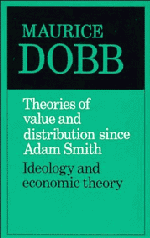8 - Rekindling of Debate
Published online by Cambridge University Press: 12 January 2010
Summary
According to Professor Shackle the 1920s saw the opening of an “Age of Turmoil”, succeeding “the Age of Tranquillity … across the great divide of the 1914–18 war.” To most economists of the time the major theoretical innovations since then would appear to have been the so-called ‘Keynesian revolution’ (eclipsing the ‘Jevonian’) and the attempt of Growth Theories from the 1940s onwards to supply something by way of an economic dynamics to redress previous concentration upon static equilibrium. These developments are commonly and alternatively described as a shift of focus back again from ‘microscopic’ phenomena to ‘macroscopic’, with which the classics were more largely concerned – to a concern with aggregates and with aggregate relations instead of with particular products and their individual prices. The two events following in fairly quick succession, the one upon the other, were clearly not unconnected, since interest in the wider horizon was implied in Keynesian preoccupation with levels of aggregate output and employment; and it was an easy and rather obvious passage from examining the determinants of the level of output in macroscopic perspective to examining the reasons why the level of output changed.
To these two developments some would no doubt feel inclined to add two others as being worthy of comparable emphasis. First, the new theory of ‘imperfect competition’ and ‘monopolistic competition’ (associated especially with the names of Joan Robinson and Edward Chamberlin) deserves to be regarded as an outstanding landmark on the horizon of the inter-war decades.
Information
- Type
- Chapter
- Information
- Theories of Value and Distribution since Adam SmithIdeology and Economic Theory, pp. 211 - 246Publisher: Cambridge University PressPrint publication year: 1973
